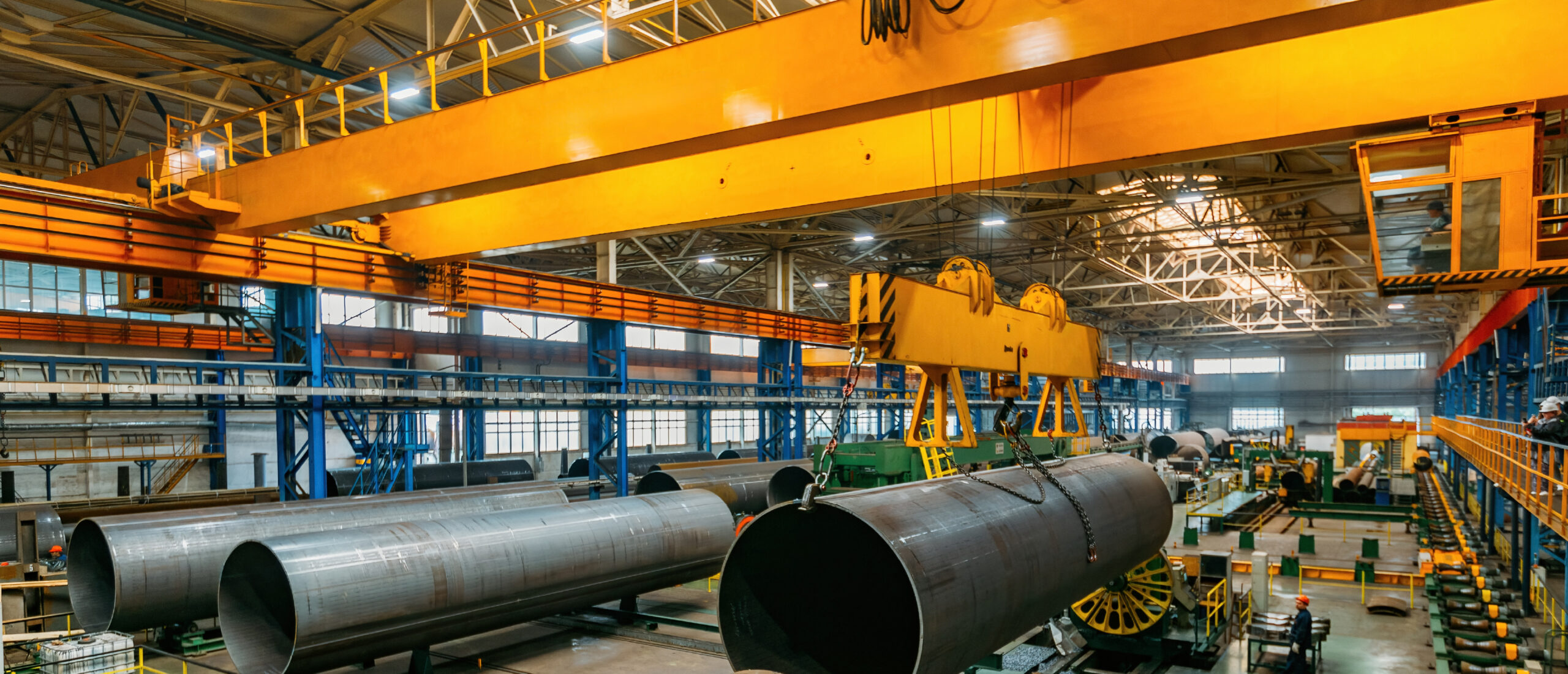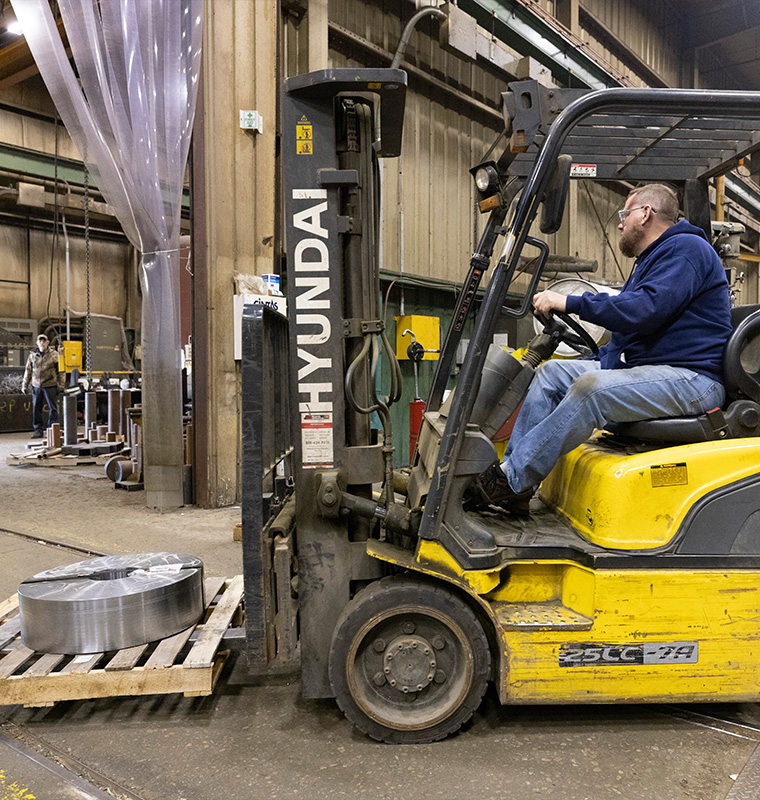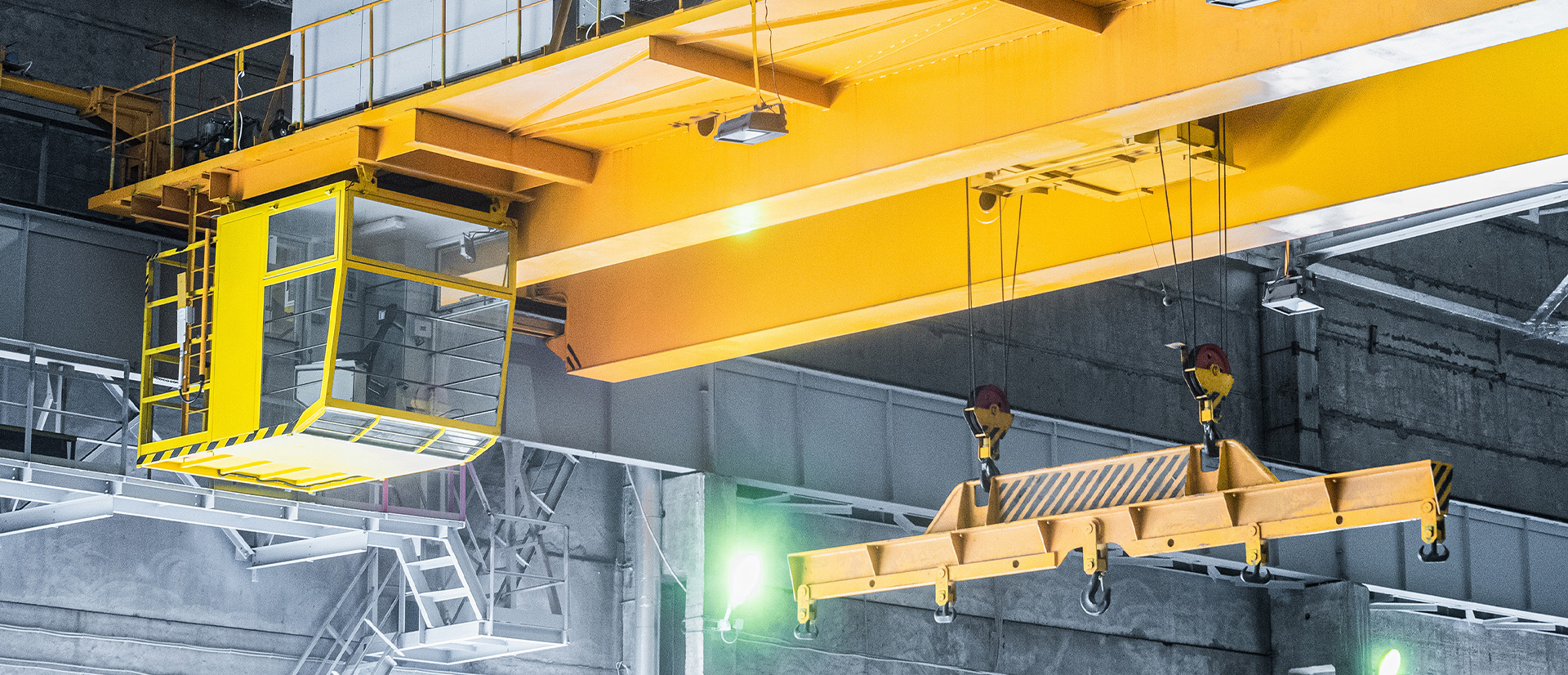The History of Overhead Cranes
It might be hard to believe, but overhead cranes have been a crucial part of industrial operations for over a century. That’s 100 years they’ve helped to simplify and streamline the movement of heavy materials and equipment, making manufacturing and construction tasks safer and more efficient and safer for workers all over the world. In this article, we take a look at the history of overhead cranes, from their earliest origins to the modern-day systems Zenar manufactures right here in Wisconsin.
Origins of Overhead Cranes
Despite how they’re powered today, the first overhead cranes were actually run on steam and produced by Ludwig Stuckenholz in Germany in the 1830s. However, it was not until the industrial revolution that electricity became the dominant form of power for overhead cranes.
This revolution started in England during the 18th and 19th centuries and was marked by a series of technological advancements that transformed manufacturing and production processes around the world. As part of this revolution, electricity became a cheaper and more reliable source of power for overhead cranes, which allowed them to be used on a larger scale and in a wider range of applications.
How They Developed
Because electric motors started to replace manual labor as the primary source of power for cranes, work could be done more quickly and easily. That increased the efficiency and reliability of cranes in industrial settings. The introduction of steel and other advanced materials also played a key role in the evolution of overhead cranes. These materials made cranes lighter, stronger, and more durable, allowing them to handle increasingly heavier loads and to withstand the rigors of industrial use.
By the early 20th century, overhead cranes had become an essential part of modern industry. They were used in a wide range of applications, from construction and manufacturing to shipping and transportation. With their improved capabilities and versatility, overhead cranes helped to revolutionize industrial production and contributed to the growth of modern economies around the world.
Lifting in Modern Times
A lot has changed. Now, modern overhead cranes are equipped with advanced control systems, such as programmable logic controllers (PLCs), which provide precise and smooth movements, enhancing the crane’s performance and accuracy like never before.
Safety is also a top priority in modern overhead crane design, and these machines are equipped with a range of safety features. For instance, they have automatic shut-off systems that activate when the crane reaches its maximum weight capacity or experiences other operational issues. On top of that, they come with overload protection, which helps prevent accidents caused by excessive weight loads. These safety features not only protect the crane operator and workers but also help prevent damage to the crane itself and surrounding equipment.
Overall, the continued development of overhead crane technology has made cranes an indispensable tool in modern industry, providing reliable and efficient solutions for heavy load handling. With their safety features, versatility, and efficiency, overhead cranes will undoubtedly continue to play a crucial role in various industries in the years to come.
Big Cranes Mean Big Benefits
As you can see, overhead cranes have come a long way since their origins in the early 19th century. Today, they are a vital part of modern industry, used in a wide range of applications to make manufacturing and construction tasks more efficient and safer for workers. With their range of safety features and advanced technologies, overhead cranes are likely to continue to play a significant role in industrial operations for many years to come.
Here at Zenar, we continue that history and use past learnings to lift America higher today. Our all-American company is proud to help our clients build bigger and better things, taking construction into tomorrow.
Head back to our homepage to learn more about the types of cranes, upgrades, and services we offer.
Read
More
Articles

Troubleshooting Techniques for Overhead Crane Electrical Problems
Nestled within the bustling heart of the industrial sphere, overhead cranes stand as monumental testaments to human engineering and ingenuity. These mechanical behemoths are indispensable in a myriad of sectors, from construction to manufacturing, playing a pivotal role in the lifting and transportation of heavy materials. Yet their pivotal role comes with its set of challenges, especially when it comes to maintaining their electrical integrity.

Overhead Cranes vs. Forklifts
When it comes to material handling, efficiency, safety, and cost-effectiveness are always top concerns in any industrial environment. Two of the most common equipment types used in these settings are overhead cranes and forklifts.

Sustainability in Crane Manufacturing
The construction industry is a cornerstone of global development but is also one of the largest consumers of energy and producers of greenhouse gas emissions.